8. The Ladykillers (1955)
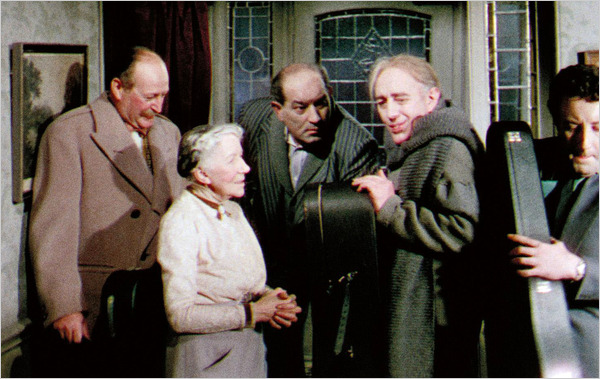
If there’s a movie with an undisputable claim to be part of this list, it is this one, the Coen Brothers loved it so much they decided to remake it almost half a century later. Their 2004 film starring Tom Hanks has been justifiably panned ever since, dismissed almost unanimously as their blandest directorial effort to date. But for any of the shortcomings of its successor, this British comedy with Alec Guinness isn’t by any means a dud.
In the same vein as The Killing, the main plot revolves around a heist that proves to be easier said than done. In the original movie, five individuals attempt to conduct a robbery by pretending to be a classical quintet (being fair to Joel and Ethan, it does sound like a premise perfectly suited to their style). Chaos ensues amid dozens of musical pieces (which the Coens also took cues from in O Brother Where Art Thou?) in a light-hearted rollercoaster of an adventure. It’s really hard not to go with the original this time around, sorry, Joel and Ethan.
9. Sullivan’s Travels (1941)
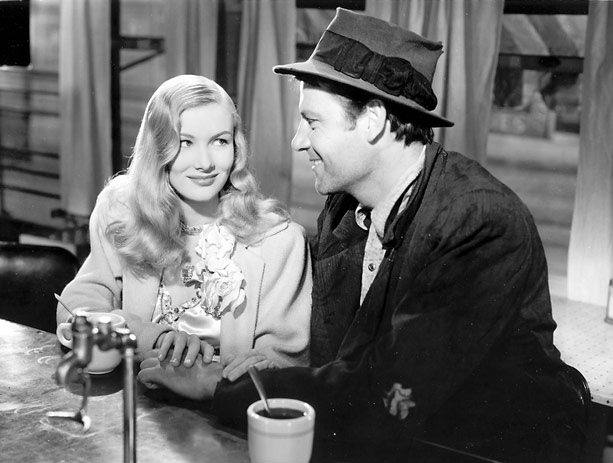
A recurrent theme in Coen movies is the struggling artist. From Barton Fink to Inside Llewyn Davis, the road to success is not all joy and glory, and their spiritual endeavors often involve rejection, fear and inner doubts, which you can only imagine has a certain autobiographical sentiment leaking in. Opposed to these mistreated creators, there’s always the figure of the big shot, an oblivious boss who is the more incompetent of the pack, and who comes to represent their personal resentment towards Hollywood’s establishment.
This Preston Sturges satire shares a lot of the story beats with Barton Fink, following a comedy director who wants to make a serious film about social issues (which curiously enough is named O Brother Where Art Thou? in the movie, just like the Coens’ 2000 Homeric musical). The travel throughout the country to learn the simple folk way of life proves to cure his self-absorbed delusions of grandeur, a similar arc experienced by Fink in his respective movie.
10. Bonnie and Clyde (1967)
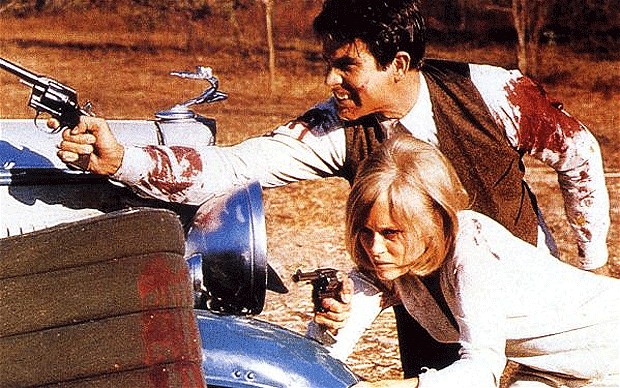
This crime movie is often hailed as one of the first entries in the New Hollywood Wave, a revolutionary movement inspired by the French that became a thing in the late 60’s, establishing a change of guard in Hollywood and becoming a symbol of American counterculture. This movement was primarily looking to break free of the shackles of big studios and their risk-averse conventionalism, as its classic and watered-down filmmaking felt outdated for a generation in need of a more radical and realistic cinema that could offer to show the social issues of the time rather than cheap escapism.
Bonnie and Clyde follows a convict couple as they rob banks and evade authorities through the Midwest. This kind of bombastic, criminal romantic road trip definitely paved the way for later hits like Terrence Malick’s Badlands, and it surely influenced the Coens’ own extravagant Midwest odyssey, Raising Arizona, a brilliant dark comedy that shares a similar structure and feel as the 1967 biographical movie.
11. High and Low (1963)
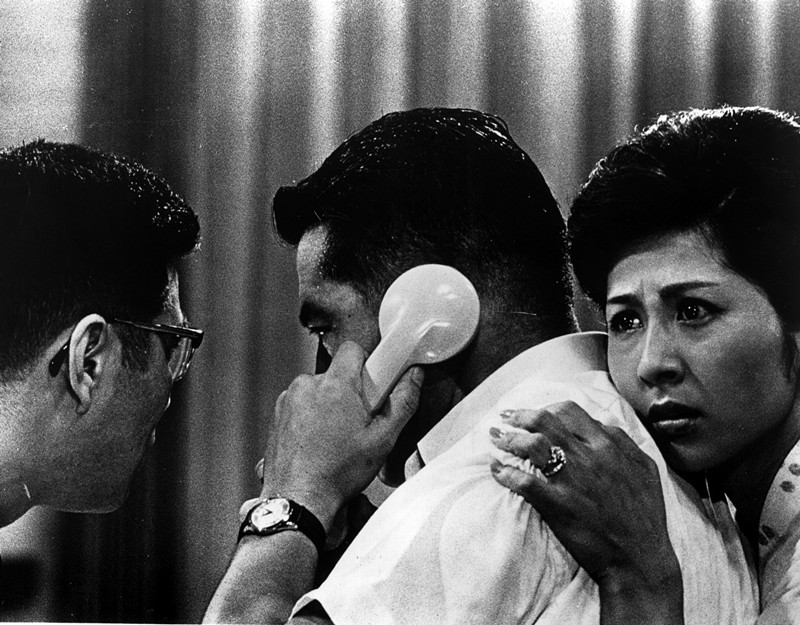
Akira Kurosawa’s magnum opus follows the kidnap of a wealthy executive’s son, with the twist that the kidnapper inadvisably confuses him with his chauffeur’s son, creating quite a moral dilemma for the executive as he finds himself reluctantly agreeing to pay the ransom. Fargo and Hail Caesar! definitely borrow a thing or two out of an attempted extortion gone adrift, but it’s in the razor-sharp execution, overwhelming tension and inherent nihilism found in Kurosawa’s thriller that parallels Joel and Ethan’s neo-western, No Country for Old Men, the most.
Both of the stories are dominated by two stone-cold criminals who refuse to bend to society and who have a moral compass of their own, while the protagonists attempt to hunt them down. The cat-and-mouse game that follows in the second half of each movie is driven by heroic detective work done by the good guys, but ultimately feels in vain as they never quite crack the reason to the perpetrator’s sadistic nature.
12. The Big Sleep (1946)
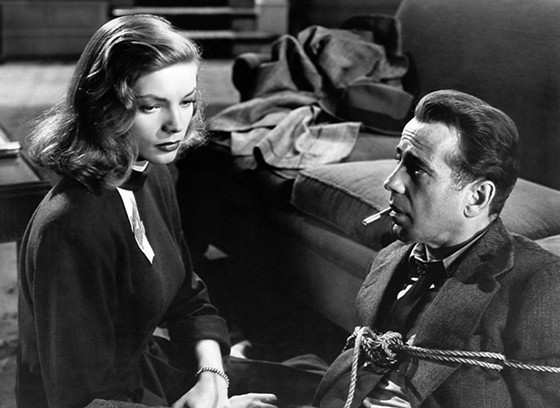
Yet another Raymond Chandler book adaptation comes up, this time a Howard Hawks mystery in which Humphrey Bogart stars as a private detective hired by a wealthy guy to investigate the blackmailing of her daughter. It follows a similarly convoluted plot full of murder and extorsion as the one seen in The Big Lebowski, to the point that the real Big Lebowski (not ‘The Dude’ but Jeffrey Lebowski) from the Coen cult film is essentially a reimagined take on The Big Sleep’s General Sternwood (both a wheelchair tycoon in a dire situation).
As the Coen Brothers put it, while they were in the process of coming up with their own film they came to Raymond Chandler’s pulpy detective stories for inspiration, especially in “how it moves episodically and deals with the characters trying to unravel a mystery, as well as having a hopelessly complex plot that’s ultimately unimportant.” Seems like they carried it through.
13. Nightfall (1956)
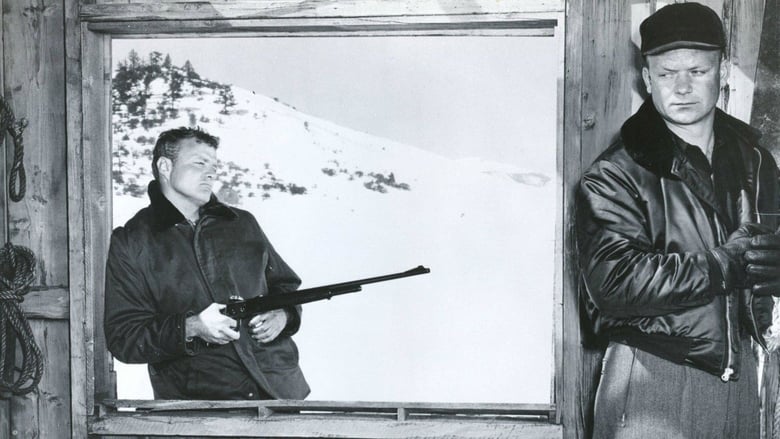
Set in snowy Montana, this Jacques Tourneur noir feels eerily similar to the Coens’ own North Dakota dark comedy, and the parallels don’t stop at the queerly remote and chilly setting.
In Nightfall, a bag full of ransom money is lost in a snowy field by a pair of criminals who happen to hate each other, who then through a chain of misfortunes and misunderstandings, get involved with the unwitting main character, while a professional, coolheaded investigator who finds support by a loving spouse trying to make sense of the whole affair. All threads come together in a vicious climax. Ring any bells yet? Even Fargo’s iconic imagery of a car that skids off an icy road can be found here too.
14. Sugarland Express (1974)
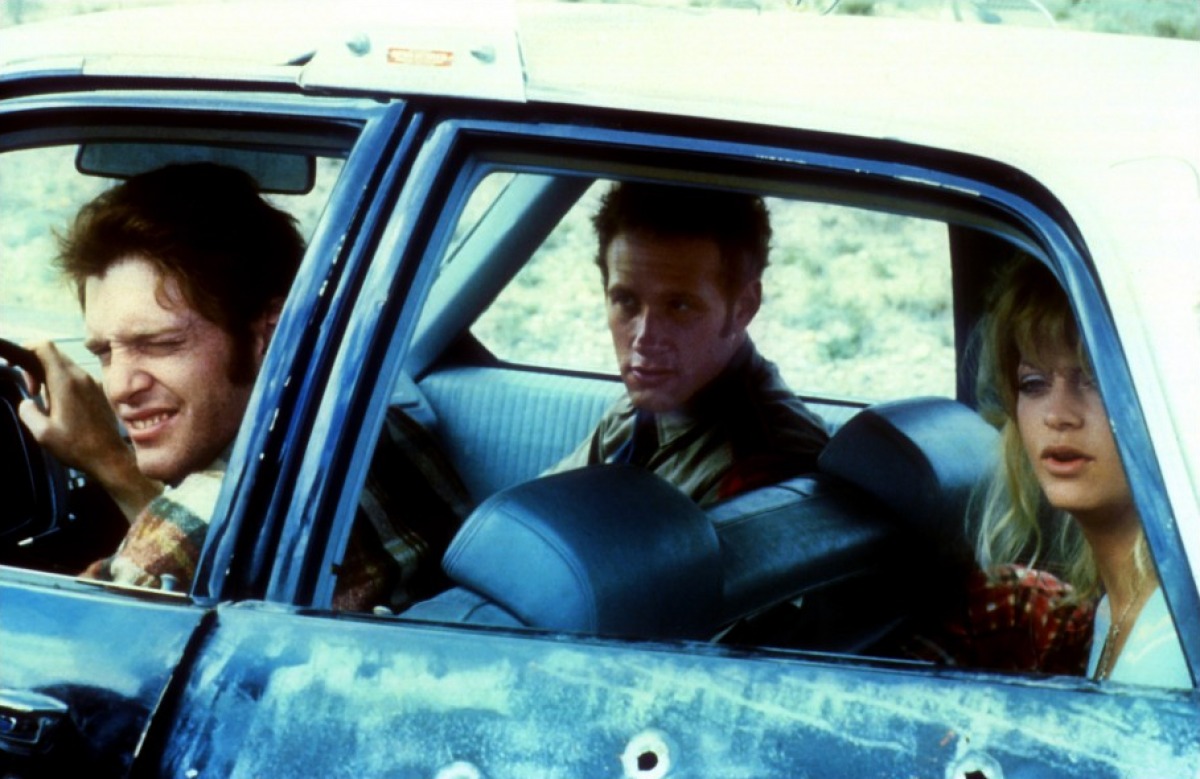
Before his full-time commitment to becoming the ultimate ‘dad movie’ director, mastering the arts of forgettable filmmaking in the past twenty years, Spielberg’s movies once resembled those of a promising auteur with unique vision, this one being his first ever rodeo as a director. Sugarland Express follows a married Texas couple on the run from justice after they try to retrieve their own child, who’s been taken from them and set to be placed in foster care. This spawns a state-wide chase between the authorities and the unstable but charming lawbreakers.
As derivative as it is itself, Sugarland Express parallels the Coens’ Raising Arizona in so many aspects, from the southern ex-convict who resents his wrongdoings, to her resourceful wife who’s determined to return to her maternal role at all costs, law and justice be damned. Both movies show their respective couples do all sorts of illegal schemes, but there’s an innocent charm that drives their erratic behaviour, making them almost pitiful characters with fundamentally decent goals, as goofy and unreasonable as their baby-snatching methods prove to be.
15. The Third Man (1949)
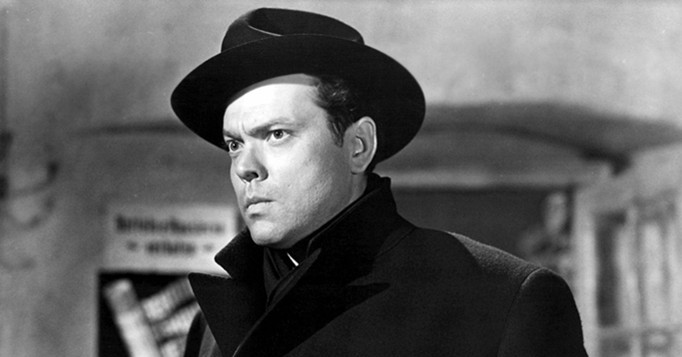
It’s said that the Coen Brothers and their director of photography, Barry Sonnenfeld, watched this Carol Reed masterpiece together on a loop in preparation for shooting what would become their first feature ever, Blood Simple. Seeing how bleak and tense their 1984 neo-thriller came out to be, it makes sense for the Minnesotan duo to have modelled it and drawn inspiration from this hard-boiled noir. And if that’s the case, it’s fair to say they accomplished what they set out to do. Both films share the same grim feel and unapologetic rhythm to their stories, building a nail-biting plot around mysterious accidents and murders before pulling the threads together in a hectic climax.
In case there was any doubt left of how much the brothers respect this movie, they’d pay homage to it once again in 1990, with Miller’s Crossing’s ending being an unsubtle nod to The Third Man.